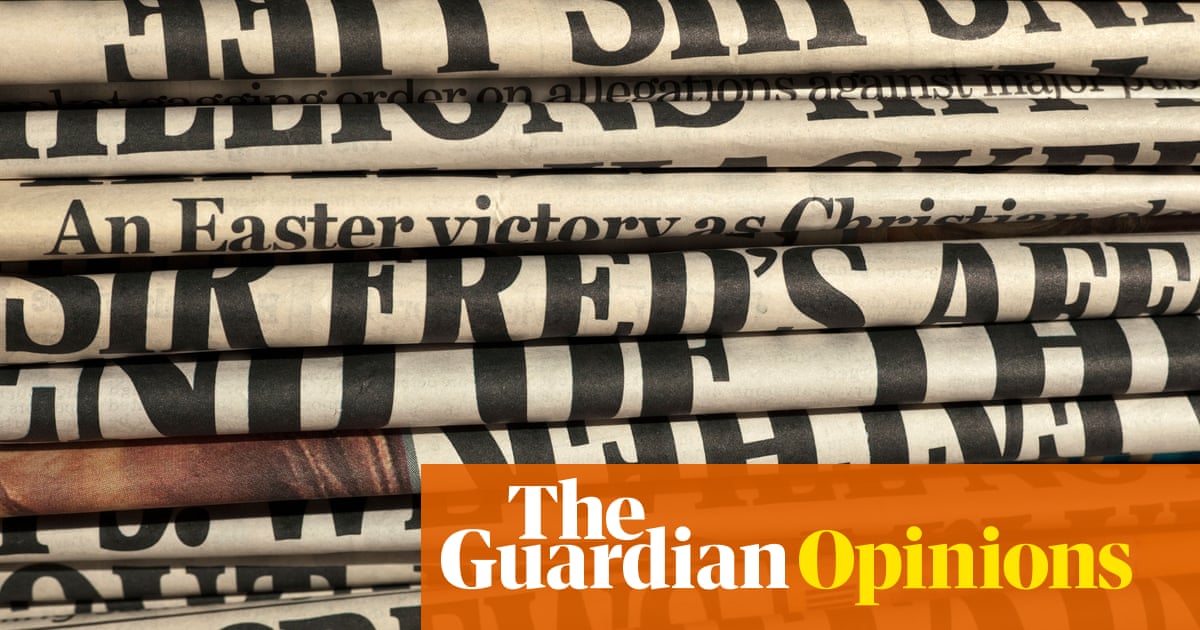‘We are fully upholding the need to safeguard our news media from foreign state control while recognising that news organisations must be able to raise vital funding,” said Lisa Nandy, the culture secretary, alighting on15% as the limit for foreign state ownership of a UK newspaper company.
She is obviously right that it is harder for companies to raise money if a pool of potential capital – state-controlled sovereign wealth funds and their like – are off-limits. No wonder some media owners lobbied for a percentage higher than the 5% that was being considered by the previous government as a tweak tolast year’s legislation that set the cap at zero.
But she is naive if she thinks 15% will ensure “minimal risk” of foreign state influence. That is not how the world works: 15% is a hefty foot in the door. A shareholder with a stake of that size will sometimes (and, in the case of listed companies, very often) be the largest on the register. The chair of an organisation cannot simply refuse to take the phone call.
If Nandy truly believes 15% is too small to make a meaningful difference, she should consider two recent examples from the world beyond state actors and sovereign funds.
At BP, a mere 5% investor, the US hedge fund Elliott Management, plainly had a role in encouraging the board to perform strategic somersaults on green investment. Yes, BP’s independent board ultimately took the decision itself. But Elliott, as we saw, tried to define expectations, set a mood and generally be influential.
There is also a non-state example from media-land itself – one where the objective was to secure an editorial safeguard. When the Scott Trust, the owner of this newspaper,sold the Observer to Tortoise Media last year, it took a stake in the post-deal entity to “enshrine our values in the new ownership structure”. The stake deemed sufficient to achieve that aim was 9% – not even double digits – albeit with a boardroom seat on top.
Under Nandy’s plan, the secretary of state will have powers to intervene if there are reasonable grounds to suspect a State Owned Investor, as they are referred to in secondary legislation, has acquired the ability to control or influence a newspaper’s policy, for example by being given rights to appoint or remove directors.
That is slippery territory. From the point of view of an autocratic regime seeking influence from the shadows, it only needs to use its shareholder access to encourage the board to smile upon the right candidate for director.
Plausible deniability would be maintained; the secretary of state would struggle to pin down “reasonable grounds”.
Nandy’s decision has come after the Abu Dhabi-backed Redbird IMI vehicle wasblocked from acquiring the Telegraphlast year. The IMI part, which would have provided the majority of the funding, is controlled by Sheikh Mansour bin Zayed al-Nahyan, a vice-president of the United Arab Emirates. Now, if parliament passes the legislation, the state-sponsored UAE entity will be able to own 15% in its own right.
The outcome would be extraordinary when you consider the uproar that would follow if the UK government owned even a 1% stake in the Telegraph or any national paper. Soon a foreign state – even oneas low in the World Press Freedom index as the UAE– may be able to own 15%.
It is also extraordinary,as argued here at the time, that the Redbird IMI affair generated so little outrage in left-of-centre circles that normally (and rightly) deplore the lack of diverse ownership of our media and how control can be held by foreign owners.
Wake up: you may not care about the Telegraph, or may even enjoy how it has been in ownership limbo, but you ought to be alarmed by the very idea of foreign states or their controlled entities being 15% co-owners of a UK media organisation.
The definition of an acceptable state stake should be zero if one is serious about protecting press freedom.
At a push, 5% might be a workable fudge if the government feels compelled to accommodate the cuddlier sort of passive state investor, such as Norway’s sovereign fund. But 15% should be a non-starter. MPs should block the proposal.
